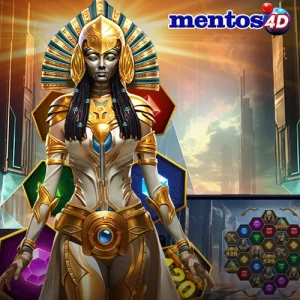In a world captivated by the digital realm, games have emerged as a ubiquitous form of entertainment, education, and social interaction. From the humble beginnings of Pong to the immersive virtual worlds of today, the landscape of gaming has undergone a remarkable evolution, shaping cultures and communities around the globe. This article delves into the multifaceted nature of games, examining their evolution, societal impact, and the future trends shaping this dynamic industry.
The Evolution of Gaming
The history of gaming can be traced back to the 1950s and 60s, with early experiments in computerized simulations and games like Spacewar! and Tennis for Two. However, it was the advent of home https://mentos4d.news gaming consoles in the 1970s that truly ignited the gaming revolution. The release of iconic systems like the Atari 2600 and the Nintendo Entertainment System (NES) brought interactive entertainment into the living rooms of millions, laying the foundation for the industry we know today.
The 1990s witnessed a golden age of gaming, marked by the rise of 3D graphics, CD-ROM technology, and the birth of iconic franchises like Super Mario, Sonic the Hedgehog, and Final Fantasy. The emergence of the internet in the late 90s paved the way for online multiplayer gaming, connecting players from across the globe in virtual worlds and competitive arenas.
The 21st century has seen gaming evolve into a multi-billion dollar industry, encompassing a diverse range of genres, platforms, and experiences. From casual mobile games to sprawling open-world adventures, there is something for every type of player in today’s gaming landscape.
The Social and Cultural Impact
Beyond mere entertainment, games have become a powerful cultural force, shaping and reflecting the values, norms, and narratives of society. Video game characters like Mario, Lara Croft, and Master Chief have become cultural icons, transcending the boundaries of the gaming world to become fixtures of mainstream popular culture.
Moreover, games have emerged as a potent medium for storytelling, with narratives tackling complex themes and issues ranging from social justice and mental health to environmentalism and identity. Games like The Last of Us, Life is Strange, and Celeste have garnered critical acclaim for their emotional depth and thought-provoking storytelling.
In addition to their cultural impact, games have also proven to be a valuable tool for education and training. Serious games, designed to educate or inform players about real-world topics, are increasingly being used in classrooms, corporate training programs, and healthcare settings to teach everything from history and science to teamwork and problem-solving skills.
The Future of Gaming
Looking ahead, the future of gaming promises even greater innovation and diversity. Advances in technology such as virtual reality (VR), augmented reality (AR), and cloud gaming are poised to revolutionize the way we play and experience games. VR and AR technologies, in particular, hold the potential to transport players to immersive virtual worlds and blur the lines between the digital and physical realms.
Furthermore, the democratization of game development tools and platforms is empowering creators from diverse backgrounds to bring their visions to life. Indie games, developed by small teams or even solo developers, are gaining traction for their unique perspectives and innovative gameplay mechanics, challenging the dominance of traditional AAA titles.
In conclusion, games have evolved from simple diversions into a multifaceted medium with far-reaching cultural, social, and educational implications. As technology continues to advance and society evolves, games will undoubtedly remain at the forefront of entertainment and innovation, shaping the way we play, learn, and connect with one another.